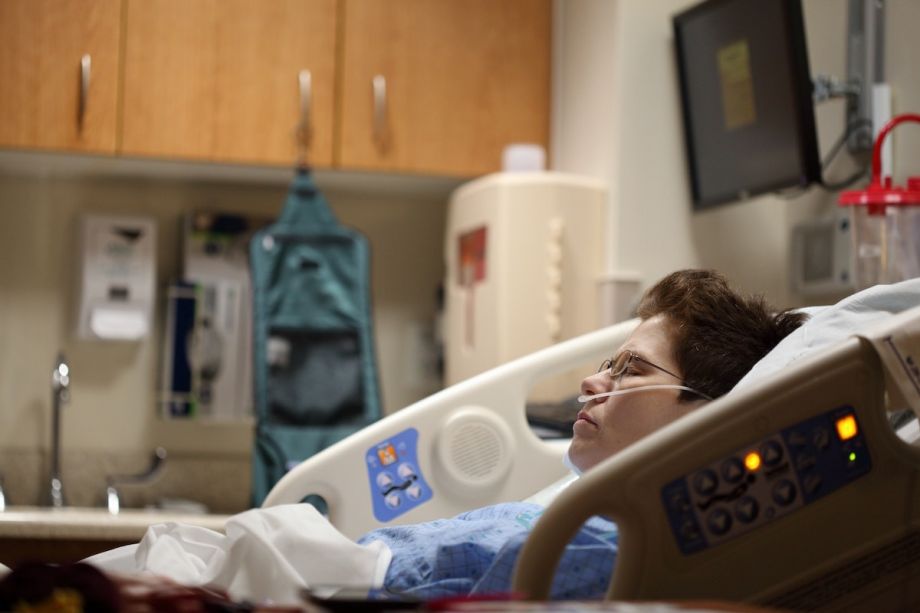Welcome to The Weekly Wrap, our Friday round up of stories that explain the problems oppressing people in cities and elevate the solutions bringing us closer to economic, environmental and social justice.
Do you have news or an event that should be in The Weekly Wrap? Email us details at wrapped@nextcity.org — and it might just get included in next week’s edition!
Philadelphia Residents Band Together to Wipe $1.6 Million in Medical Debt
A group in Philadelphia teamed up with nonprofit RIP Medical Debt to raise $17,000 and purchase $1.6 million in medical debt owed by Philadelphia residents, according to the Philadelphia Inquirer. RIP Medical Debt helps people purchase portfolios of medical debt from hospitals for pennies on the dollar. Hospitals typically sell off debts to creditors for small sums of money when they become delinquent. Last week’s debt cancellation will impact 1,700 Philadelphia residents, and the group raised funds from 55 people. They celebrated the debt cancellation with a symbolic debt-burning party, thrown by the “self-described gutter-pagan, mostly queer dirtbags in their early 30s,” who raised the funds, according to the Inquirer.
Biden Administration Announces Prescription Drugs Subject to Medicare Price Negotiations
The Biden administration has released a list of prescription drugs for which Medicare will begin negotiating prices. Private health insurance companies have always been able to negotiate prescription drug prices, but the federal government was limited in this role until the Inflation Reduction Act passed last year made it possible. According to the New York Times, the list includes a drug for preventing strokes and blood clots produced by Bristol Meyers Squibb and Pfizer, an Eli Lilly drug for heart failure and diabetes, and Johnson & Johnson drugs for blood cancers, Crohn’s disease and strokes, among others. The drugs were chosen based on the level of Medicare spending and how long they’ve been on the market, according to the Times.
News Outlet Launches New York ‘Wage Theft Monitor’
The news outlet Documented has launched a Wage Theft Monitor that allows anyone to look up local businesses that the Department of Labor has found to owe workers pay. According to Documented, the database consists of “thousands of wage and hour records from the New York State and federal Departments of Labor from January 2012 to December 2022.” The outlet says the full amount estimated to have been stolen from workers during this period is between $1 billion to $4 billion. According to a search in the database, the New York City Housing Authority’s Ravenswood development owed $6,874 to a single employee, according to a case filed in April 2020. The company Buzzfeed owed $16,427 to a single employee in 2020. NYC’s Health and Hospitals system owes one employee $1,250. And so on.
New York City’s 24-Hour Speed Cameras Are Working
Violations for speeding dropped by 30% in the first year of a 24-hour speed camera trial in New York City, according to Streetsblog. The cameras initially led to a spike in tickets followed by a gradual decline, and 80% of people who get a ticket do not get a repeat ticket, according to Streetsblog, a sign that the cameras are working as intended. The cameras were previously only allowed to operate Monday to Friday between 10 a.m. and 6 p.m., until a change in state law in 2022. Before that, speeding tickets were administered by police officers on nights and weekends. Despite criticism that the 24-hour speeding tickets were a cash grab, the always-on approach has counterintuitively led to fewer tickets and less revenue for the city.
D.C. Failing to House Young Adults Experiencing Homelessness
Ninety-eight percent of young adults under the age of 25 who experienced homelessness in D.C. last year were not connected with housing, according to the Washington Post. And only 16% of single adults who have received city services were housed during the same period. Nine percent of LGBTQ+ homeless people were able to secure housing that year. Single adults are the largest population of homeless people in D.C. with 7,800 people, according to the Post, while young adults account for about 930 people. But most vouchers are directed to families experiencing homelessness as well as vulnerable subpopulations, like veterans or people experiencing chronic homelessness, or people with mental health or substance abuse issues, what one advocate told the Post was an example of a “scarcity” approach.
Curated by Deonna Anderson
MORE NEWS
-
In Philly, environmental leader Jerome Shabazz is working with the Audubon Society, Temple University and Drexel University to turn vacant lots into a new park system. Billy Penn
-
The District of Columbia’s Metro received a $104 million grant from the Federal Transit Administration. It will be used to create a garage to house electric buses for the region. Washington Post
-
New research from UC Berkeley’s Terner Center for Housing Innovation shows the housing potential on land owned by faith-based organizations or nonprofit colleges. These entities own over 171,000 acres of developable land “that would be would be eligible for SB 4 incentives, and that could be used for affordable housing.” Muhammad Tarek Alameldin via Twitter
-
In states (like Florida) where IRA money is blocked, legislators are urging the Biden administration to work with cities to deploy the climate funding. Politico
-
UPROSE, a grassroots environmental justice group in Brooklyn, recently released a report detailing its plan to decarbonize the borough’s Sunset Park neighborhood, which is home to New York City’s second-largest industrial business zone. Access the report here.
RESOURCES
-
The Association of Arts Administration Educators is accepting applications for its Arts Administrators Pipeline Fellowship program. The 11 people who are accepted will participate in a 12-month paid fellowship and receive a $50,000 stipend, as well as professional development opportunities. Host organizations will receive $35,000 to support fellows. Learn more and apply here.
-
Decolonizing Wealth Project is accepting applications for its #Case4Reparations initiative. It will be distributing $3 million to organizations that are supporting systemic and policy change efforts in service of reparations. The proposal deadline has been extended to Sept. 7 at 2 p.m. Eastern. Learn more here!
EVENTS
-
Leah Rothstein and Richard Rothstein will join us to discuss their book “Just Action: How to Challenge Segregation Enacted Under the Color of Law.” Sept. 6 at 1 p.m. Eastern. Register for the webinar here!
-
The Center for Public Partnerships and Research (CPPR) and Orange Sparkle Ball are hosting a conversation about the power of community and the Tech-Enabled Community Resilience model. Sept. 15 at 11 a.m. Eastern. Learn more and register here.
This article is part of The Weekly Wrap, a newsletter rounding up stories that explain the problems oppressing people in cities and elevate the solutions bringing us closer to economic, environmental and social justice. Click here to subscribe to The Weekly Wrap newsletter.

Roshan Abraham is Next City's housing correspondent and a former Equitable Cities fellow. He is based in Queens. Follow him on Twitter at @roshantone.










